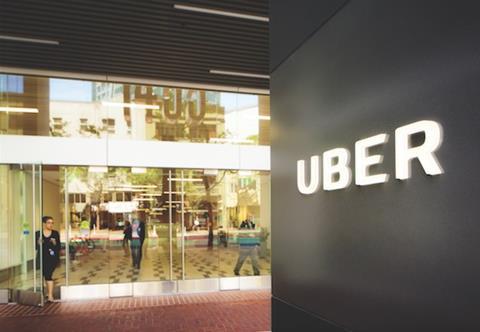
The London Central Employment Tribunal has ruled that Uber drivers are employed as workers and are entitled to the national minimum wage and holiday pay in a preliminary hearing.
In the case of Aslam and Farra v Uber, the drivers contended that they were workers rather than independent contractors, and were therefore entitled to workers’ rights such as the national minimum wage and holiday pay.
The drivers’ claims were supported by the GMB union and heard at the London Central Employment Tribunal in July 2016.
The Employment Tribunal’s decision in the preliminary hearing, released today (28 October 2016), found that the drivers were employed as workers within the meaning of the Employment Rights Act, National Minimum Wage Act, and the working time regulations. The tribunal found that the claimants were engaged in unmeasured work for the purposes of the National Minimum Wage Regulations, and that their working time should be calculated in accordance with the working time regulations.
A further Employment Tribunal hearing will be held to calculate the claimants’ holiday and pay entitlements.
Uber, which has more than 40,000 drivers across the UK, intends to appeal the decision.
Jo Bertram, regional general manager at Uber UK, said: “Tens of thousands of people in London drive with Uber precisely because they want to be self-employed and their own boss. The overwhelming majority of drivers who use the Uber app want to keep the freedom and flexibility of being able to drive when and where they want. While the decision of this preliminary hearing only affects two people, we will be appealing it.”
Annie Powell, a lawyer in the employment team at Leigh Day, which represented the Uber drivers, added: “This is a ground-breaking decision. It will impact not just on the thousands of Uber drivers working in this country, but on all workers in the so-called gig economy whose employers wrongly classify them as self-employed and deny them the rights to which they are entitled.”
Tim Goodwin, associate solicitor at Winckworth Sherwood, said: “This judgment is likely to have massive implications across the gig economy, as we see an increasing number of start-up businesses effectively adopting Uber’s model. The effect of this judgment is that those kinds of businesses may owe a lot more to their workers, such as paid holiday and minimum wage, than they had bargained for. This outcome should be taken as a salutary lesson by businesses which try to arbitrarily ‘classify’ workers as contractors to avoid affording them their full rights as workers.
“Nevertheless, it would be foolhardy to rely on this outcome too heavily. This is a first instance decision, and one of immense importance, so we should expect to see it fought out again in the Employment Appeal Tribunal, or even the higher appeal courts. Employment status has also become the focus of a Parliamentary inquiry, launched earlier this week, so we should expect to hear a lot more about this going forward, and potentially some legislative changes.”
Tom McPhail, head of retirement policy, at Hargreaves Lansdown, added: “This is great news for anyone working in the gig economy [because] it means they are more likely to be eligible for a workplace pension, with all the attendant benefits and, in particular, the highly valuable employer contribution.
"It is also going to be a challenge for Uber and employers like them, in deciding what specific pension terms they want to offer their employees. They have some latitude on earnings definitions and deferral periods but however they deal with this, it is going to cost them time and money.”











